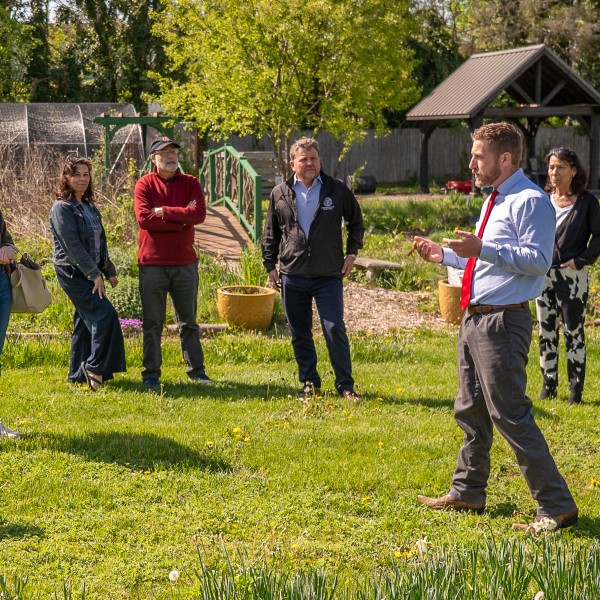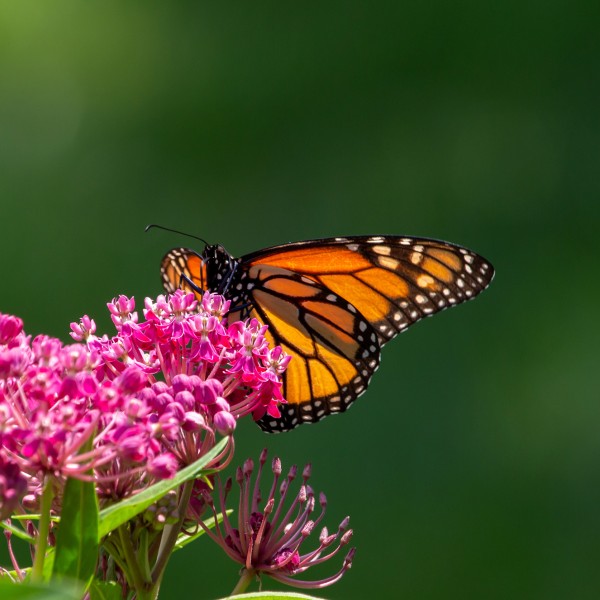Research projects from eight doctoral students ranging from milk processing and hops production in New York to beekeeping in Mexico will be supported by 2017 Engaged Graduate Student Grants.
The eight projects in the College of Agriculture and Life Sciences represent half of the 16 projects being supported by the Engaged Graduate Student Grants. The grants provide opportunities for Ph.D. students and their thesis advisors to conduct research or scholarship that is community engaged or to develop strategies for incorporating community engagement into existing thesis work. Applications for the 2018 grants will be announced in the fall.
Information about each project can be found on the Engaged Cornell website.
Causal Effects of Later School Start Times: The Case of NYC Public Schools
Graduate Student: Hui Fen (Sarah) Tan, statistics
A growing body of research suggests that later school start times improve adolescents’ health and academic performance. However, more research needs to be done to identify a causal link between later school start times and improved student outcomes. To this end, Sarah Tan is working with the New York City Office of School Health to evaluate the impact of start times in the city’s public schools, using machine-learning based causal inference methods she is developing in her dissertation research. After looking at a comprehensive set of student outcomes and accounting for conditions unique to local schools, Tan will provide each school with a specific policy recommendation to improve students’ health and performance.
Special Committee Chair: Giles Hooker, Department of Biological Statistics and Computational Biology
Community Partner: New York City Office of School Health
Evaluating Quality Management Systems: Engaging the NY Dairy Industry in Milk Quality Improvement
Graduate Student: Sarah Murphy, food science
About a third of the milk produced by New York farms is processed into fluid milk, making it an important part of the state’s economy. Fluid milk, however, is prone to rapid spoilage; this is a particular issue in older dairy processing facilities. In collaboration with Cornell Dairy Extension, Sarah Murphy is helping New York dairy processors — especially small processors — develop and implement enhanced quality management systems. These efforts will improve the quality of the milk processed and help assure production of high-quality dairy products, maintaining the competitiveness of the upstate New York dairy industry.
Special Committee Chair: Martin Wiedmann, Department of Food Science
Community Partners: Cornell Dairy Extension, NYS fluid milk processing plants
From Civil Rights to Local Food: Historical and Local Perspectives on Food Justic
Graduate Student: Bobby J. Smith II, development sociology
How do local food justice efforts address the food access concerns of low-income communities? How can historical perspectives on food justice be used to aid in these efforts? These questions are central to Bobby Smith’s research and his goal of helping to create a more just, sustainable local food system. By analyzing community responses to the Greenwood Food Blockade of 1962 during the American civil rights movement — as well as current local food justice efforts organized by his community partners — Smith is examining how historical perspectives can aid local community food efforts and how communities rely on food justice to generate creative solutions to address their food needs and related problems.
Special Committee Chair: Scott Peters, Department of Development Sociology
Community Partners: G.I.V.E. Program, Rocky Acres Community Farm
Good Land Governance in Post-Authoritarian Myanmar
Graduate Student: Hilary Faxon, development sociology
Myanmar’s recent turn toward democracy offers new hope for millions of farmers who lost their land during decades of authoritarian rule. But adjudicating land disputes has proven difficult, with only a small percentage of farmers receiving compensation. Hilary Faxon is analyzing the complex politics of land in Myanmar and applying insights in collaboration with a local nonprofit that works with activists and the government towards solutions to land conflict.
Special Committee Chair: Wendy Wolford, Department of Development Sociology
Community Partner: Land Core Group
Linking Flood Risk and Climate Change: A Map of Riverine Flood Risk in Central New York State
Graduate Student: James Knighton, biological and environmental engineering
Despite increased funding since the 1936 Omnibus Flood Control Act, flood damages have continued to escalate. Today, there is an ongoing debate about the relationship between man-made climate change and flood-inducing weather events. James Knighton is developing a flood-risk methodology to analyze the link between increased flood risk and global climate change, coming up with a system that can be leveraged by stakeholders to implement flooding solutions at the local level, generate public support for funding of flood instrumentation and monitoring at the state level, and generate public support for climate change-related action at the national level.
Special Committee Chair: M. Todd Walter, Department of Biological and Environmental Engineering
Community Partner: City of Ithaca
Restoring the Place of Nut Trees in Haudenosaunee Foodscapes
Graduate Student: Sam Bosco, School of Integrative Plant Science – Horticulture
Nut trees native to the temperate Northeast are uniquely positioned to contribute to sustainable agriculture — providing economic and nutritional value while promoting soil and water conservation, human and wildlife habitat, and important ecosystem services. They also provided critical sustenance before and during the development of agriculture in pre-colonial North America. Sam Bosco is working with Haudenosaunee (People of the Longhouse, aka Iroquois) communities to further remember and restore their tradition foodways — much of which was lost during colonization — of integrating nut trees into a sustainable food system. Bosco’s work includes facilitating nut tree cultivation, and co-developing culturally-specific curricula, resources, and activities to expand interest and consumption of nuts.
Special Committee Chair: Jane Mt. Pleasant, School of Integrative Plant Science – Horticulture, and American Indian and Indigenous Studies Program
Community Partners: Tuscarora Nation, Niagara-Wheatfield Middle School
Stakeholder Engagement: Avoiding Catastrophic and Chronic Losses in the NY Hop Industry
Graduate Student: Bill Weldon, School of Integrative Plant Science – Plant Pathology
New York was the center of North American hop production in the early 1900s before fungal epidemics destroyed harvests and the industry moved west. However, the number of New York hop yards has recently exploded thanks to recent growth of the U.S. microbrewing industry and a 2012 law that incentivizes brewers to use hops and barley grown in the state. This has created a community of new growers whose inexperience puts operations at risk for catastrophic and chronic losses in yield. Bill Weldon is working with these growers to identify information gaps and connect them with experts who can effectively interpret research and communicate best practices for growing hops in New York.
Special Committee Chair: David Gadoury, School of Integrative Plant Science – Plant Pathology and Plant-Microbe Biology
Community Partners: Cornell Cooperative Extension and the Northeast Hop Alliance, USDA-ARS Corvallis, Pedersen Farms, Fowler Farms
Yucatec Maya Beekeeping and Sustainable Livelihoods
Graduate Student: Ted Lawrence, natural resources
Economic globalization is a pervasive driver of ecological and cultural change worldwide. It shapes the landscapes and livelihoods of even the world’s most remote regions, upsetting traditional patterns of land and natural resource management and creating new challenges for native communities. Ted Lawrence is working with Yucatec Maya communities to reclaim the forgotten skill of native beekeeping as a traditional livelihood and, ultimately, developing ways for the Maya to adapt to economic globalization and build new capacities to conserve biodiversity, traditional livelihoods, and their rich cultural heritage.
Special Committee Chair: Rich Stedman and Stephen Morreale, Department of Natural Resources
Community Partner: X-kumil (Mexico)











